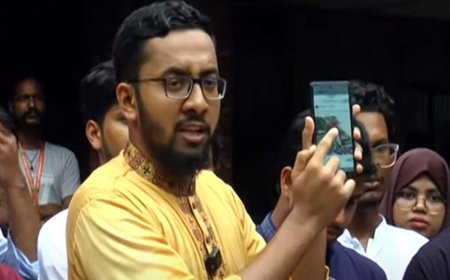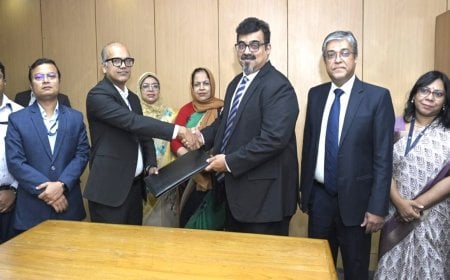Semiconductor Symposium Set to Spotlight Bangladesh's Innovation Ambitions

With an aim to transform Bangladesh into a "Nation of Innovation," the country is set to host its first-ever Bangladesh National Semiconductor Symposium on July 16. The event will take place simultaneously in Dhaka and Chattogram, bringing together domestic and international entrepreneurs and researchers from the semiconductor industry.
In conjunction with the symposium, the BEAR Summit 2025—focusing on Biotech, Electronics, Artificial Intelligence, and Robotics—will be held from July 16 to 18. The summit will center on applications in the semiconductor industry. While the venues for the BEAR Summit are yet to be finalized, preparations are already underway.
A multi-stakeholder preparatory meeting is scheduled for June 24 at 8:00 AM. Industry stakeholders from Chattogram will join online in the afternoon. Invitations have been extended to all universities across the country, according to sources. The coordination of the symposium is reportedly being handled by Bangladeshi researchers working across various countries in the relevant fields.
The organizing committee includes Professor Muhammad Mostafa Hussain of the Electrical and Computer Engineering (ECE) Department at Purdue University; Faiz Ahmad Taiyeb, Special Assistant to the Principal Advisor to the Prime Minister; Professor Md. Rezwan Khan, Vice-Chancellor of United International University; Professor Syed Kamrul Islam, Chair of the ECE Department at the University of Missouri; Anisul Islam, Vice President at Applied Materials; Professor Saif Salauddin of the EECS Department at the University of California, Berkeley; Dr. Sayeed Badruddoja, Senior Principal Engineer at NXP Semiconductors; and Professor Mohammad Anisuzzaman Talukder of the Department of Electrical and Electronic Engineering at BUET.
The event is being organized under the joint initiative of the ICT Division, World Bank, EDGE Project, and BIDA. Researchers will have the opportunity to showcase scientific posters and innovative technologies. The exhibits will include robotics and sensor-based hardware prototypes, AI software, and automated models. Participants are also expected to display problem-solving frameworks related to national challenges through visual presentations in A0-sized portrait format (84.1 cm × 118.9 cm), featuring diagrams, graphs, and references.
For the first time, teams that have won international robotics competitions over the past five years will also be featured at the event.
Speaking to the press, Professor Muhammad Mostafa Hussain confirmed that 346 individuals have already registered to attend the symposium before the Eid holidays. Among them, 217 have volunteered to assist, and 124 have expressed interest in participating in the poster and demo exhibitions.









































































































































































































